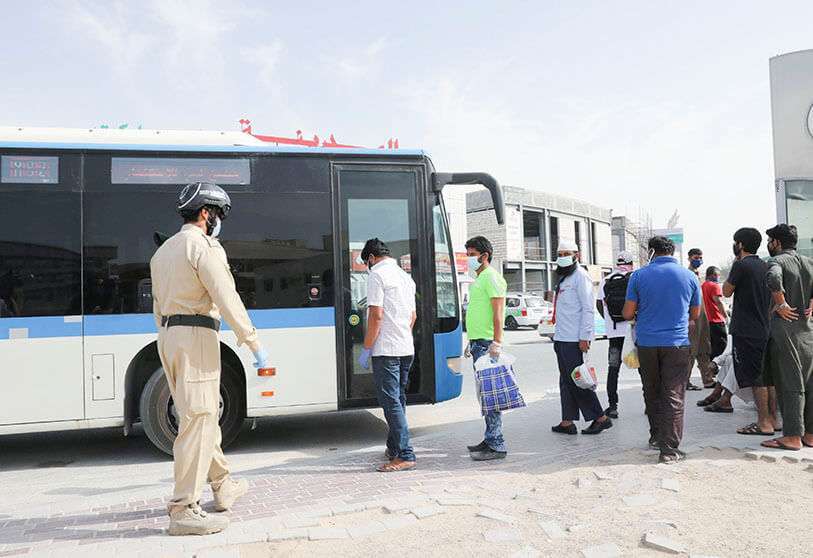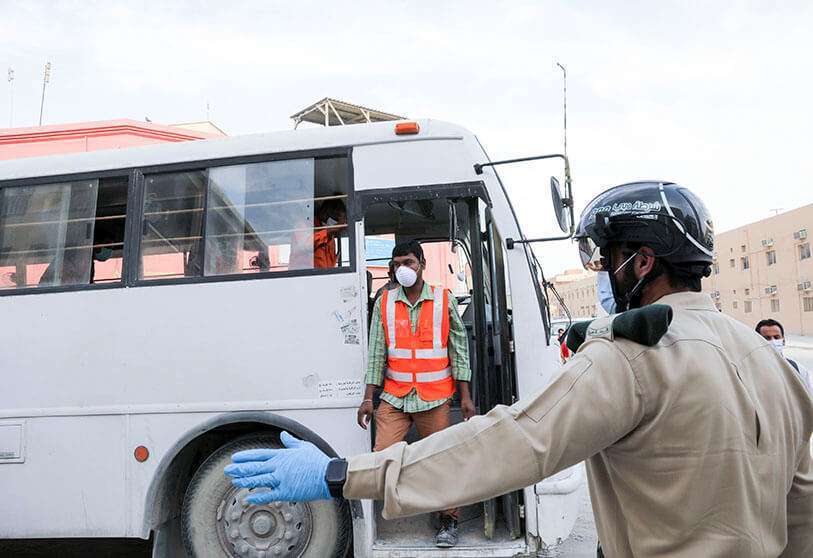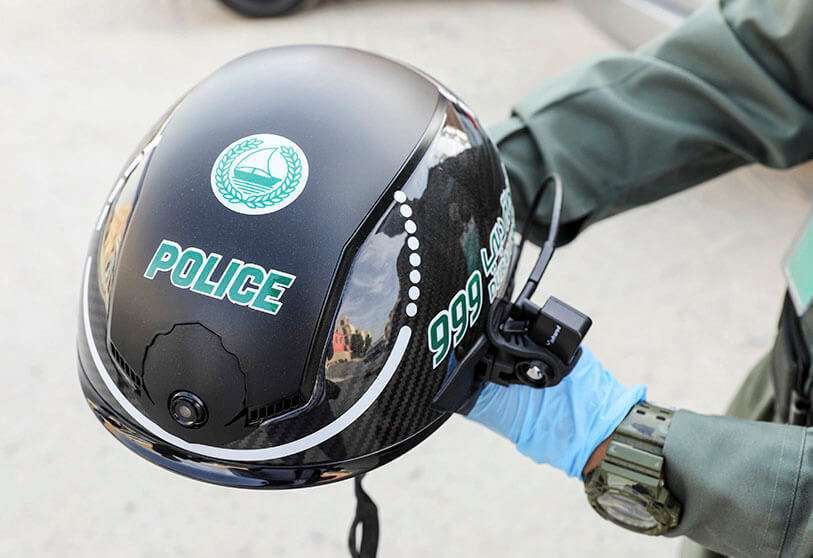Smart helmets to detect possible COVID-19 infections

The United Arab Emirates (UAE) continues to set an example of initiative and innovation in its fight against the coronavirus pandemic. This time it is the police of the emirate of Dubai that is focusing the spotlight due to the debut of the use of intelligent helmets that allow the measurement of the temperature of several hundred citizens in a few minutes.
This is the latest development implemented in the Emirates in the face of the struggle against COVID-19 disease that is shaking the world and has already left tens of thousands dead and more than 2.7 million affected around the globe. These helmets, in addition to serving as a protection element, include thermal sensors that make it possible to take the temperature of up to 200 people per minute, giving the option of discovering new people affected by coronavirus.

This measure was already adopted for use in several provinces in China, a country that has controlled the pandemic according to official data, and now comes to UAE, as explained by the UAE security forces themselves on the social network Twitter.
In fact, the Emirate of Dubai has already begun the process to progressively end the confinement and, as of this Friday, it is already allowed to leave the houses after 20 days of confinement without the need to request official permission; all this once the green light has also been given for a slight commercial opening in several sectors and catering businesses.

In this scenario of incipient opening, the Dubai authorities have decided to control as much as possible the state of the people in circulation to avoid an outbreak of the disease. Thus, the device of these intelligent helmets, manufactured by a Chinese company, incorporates two cameras that provide infrared thermal images from a distance of five meters. The helmet has been used for the last few days by the police and ambulance services of the emirate and is used to detect the temperature of up to 13 people simultaneously on public roads and means of transport during the day and night (up to 200 people in one minute). The results of the scan are displayed on a screen in real time. If a fever is detected, an alert is issued.
"If someone has a high temperature, we take the necessary measures to stop them. They are then assisted by paramedics and taken to the nearest medical facility," said police officer Ali al-Ramsi, speaking to Reuters. "We have implemented this smart helmet during the COVID-19 crisis in all police stations in Dubai as well as in patrols whose responsibility requires them to be on the front line," the police spokesman said. In this way, the Dubai Police uses these smart helmets with thermal sensors to detect possible coronavirus infections.

Police spokesman Obaid al-Hazbur also said the devices allow for the scanning of the temperature of public transport users with "high efficiency," according to local media outlet Emarat al-Youm.
The fight against the coronavirus continues in the UAE after 64 deaths and more than 9,000 diagnosed cases. Relatively low figures thanks to the work of the Emirati authorities who have invested many resources in combating COVID-19, both in the provision of screening tests and in health developments such as the large field hospital that was erected at the World Trade Center in Dubai, the largest in the Middle East.








